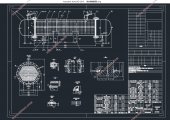檬酸钠吸收低浓度二氧化硫吸收装置设计(含CAD零件图装配图)(任务书,开题报告,论文说明书11500字,CAD图纸5张)
摘要
烟气脱硫是指去除烟气或各种其它工业废气中的含硫化合物比如SO2等。烟气脱硫的方法主要有:石灰石法、双碱法、海水脱硫、柠檬酸钠法等。其中柠檬酸钠法具有更好的效果。
本次课题主要研究柠檬酸钠吸收低浓度二氧化硫工艺。依据化工学院同学给出的设计参数进行吸收设备的设计。根据柠檬酸钠和二氧化硫的性质,选择吸收塔为填料塔,贫富液换热器为固定管板式。并进行了工艺设计,管道设计,塔设备设计,换热器设计以及技术经济评价等设计。主要进行了以下的工作:
1、与化工学院本课题设计团队的同学协同工作,运用Aspen Plus流程模拟设计软件,对柠檬酸钠吸收二氧化硫进行工艺设计模拟,得到物料工艺参数及设备工艺尺寸。
2、参照《化工工艺手册》和《化工设备设计手册》等设计资料,完成了柠檬酸钠吸收二氧化硫的吸收设备平面布置、管道平面布置等,设计结果符合要求。
3、按照NB/T47041-2014《塔式容器》和GB150-2011《压力容器》等相关标准要求,对填料吸收塔进行结构及附件选型设计,利用SW6过程设备强度计算软件进行机械强度设计和校核,设计结果符合要求。
4、按照GB/T151-2014《热交换器》和GB150-2011《压力容器》等相关标准要求,对贫富液换热器进行结构及附件选型设计,利用SW6过程设备强度计算软件进行机械强度设计和校核,设计结果符合要求。
5、参照《过程装备成套技术》等相关资料及标准要求,对本课题进行技术经济评价,预估了未来的经济效益。
关键词:柠檬酸钠吸收SO2吸收;烟气脱硫;吸收塔;贫富液换热
Design of low concentration sulfur dioxide absorption
device of sodium citrate
Abstract
It refers to the removal of flue gas desulfurization of flue gas or a variety of other industrial emissions of sulfur compounds such as SO2 and so on. Flue gas desulphurization methods are: limestone method, dual-alkali, seawater desulfurization, sodium citrate and the like. Wherein sodium citrate method has better results.
The main topic of low concentrations of sulfur dioxide, sodium citrate absorption process. Based on the design parameters given in Chemical Engineering students absorption device design. Depending on the nature of the sulfur dioxide and sodium citrate, select the absorber is a packed column, rich and poor liquid heat exchanger is a fixed tube sheet. And the process design, piping design, tower design, the heat exchanger design and technical and economic evaluation of design. Mainly for the following work:
1, the subject and Chemical Engineering students design team to work together, using the Aspen Plus process simulation design software, to absorb sulfur dioxide, sodium citrate process design simulation, process parameters and material equipment and technology dimensions.
2, the reference to "Handbook of Chemical Technology" and "Chemical Equipment Design Manual" and other design data, completed the absorption of sulfur dioxide, sodium citrate absorption equipment layout, piping layout and other design results meet the requirements.
3. The NB / T47041-2014 "tower vessel" and GB150-2011 "pressure vessel" and other relevant standards for structural absorption tower packing and accessory design selection, the use of process equipment SW6 strength calculation software for mechanical design and strength check design results meet the requirements.
4, according to GB / T151-2014 "heat" and GB150-2011 "pressure vessel" and other relevant standards, for rich and poor liquid heat exchanger and accessories selection for structural design, process equipment utilizing SW6 mechanical strength calculation software strength design and check the design results meet the requirements.
5, with reference to relevant information and standards "Process Equipment sets of technology", etc., subject to technical and economic evaluation of the estimated future economic benefits.
Keywords: Sodium citrate absorption SO 2 absorption; flue gas desulfurization; absorption tower; rich and poor liquid heat exchang
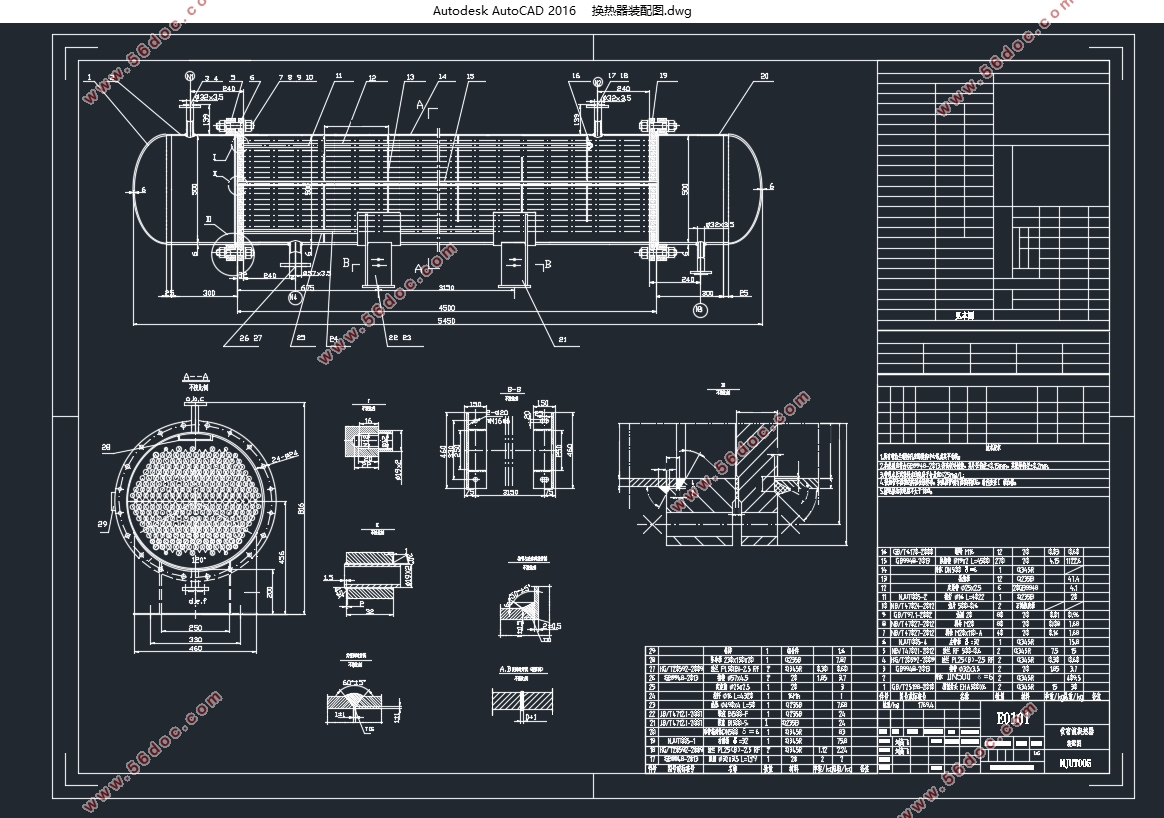
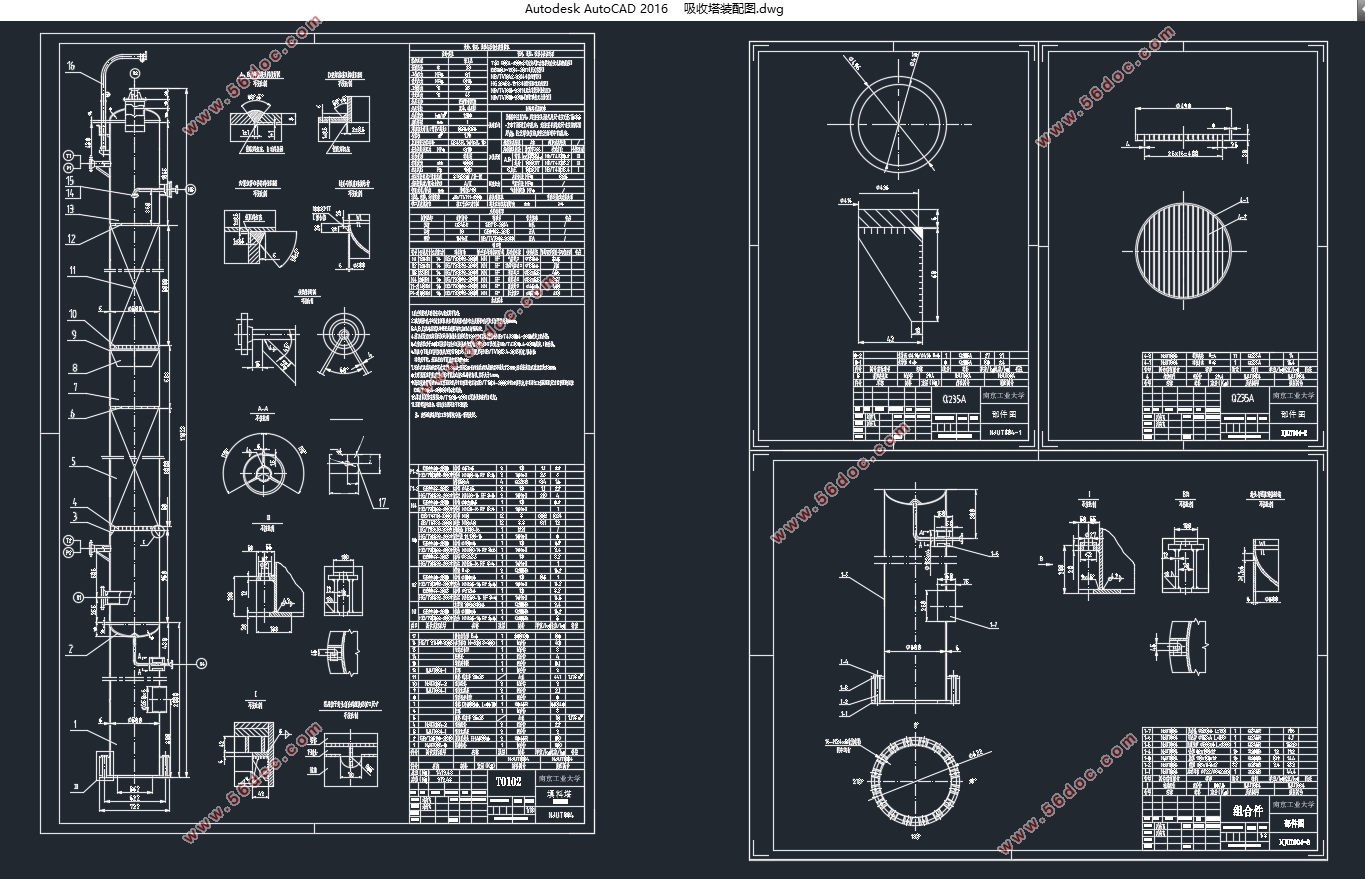
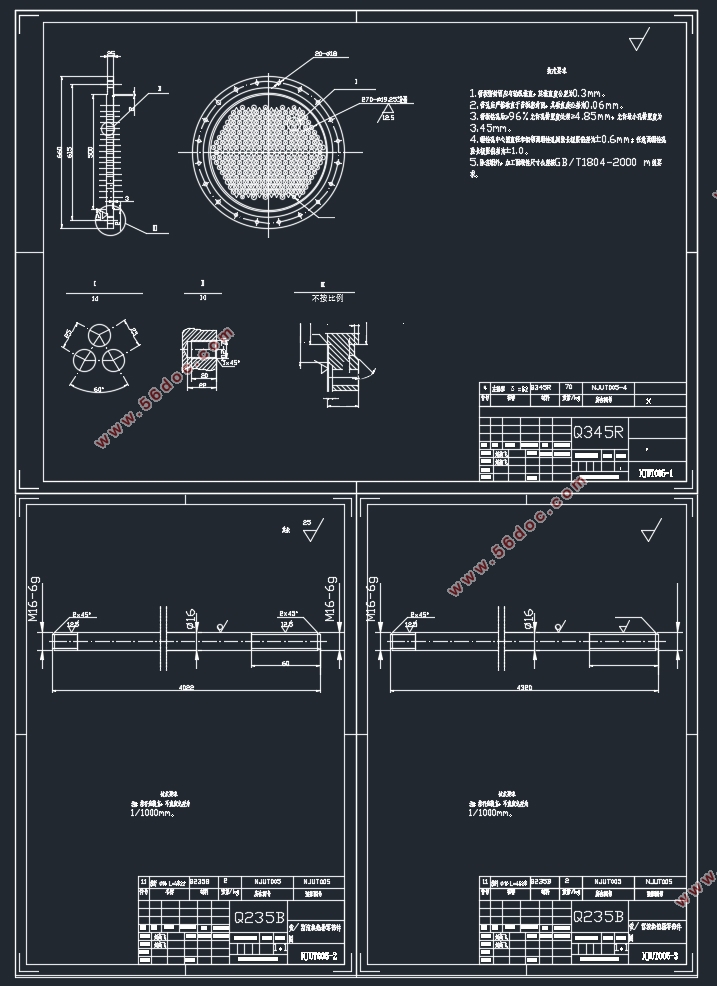
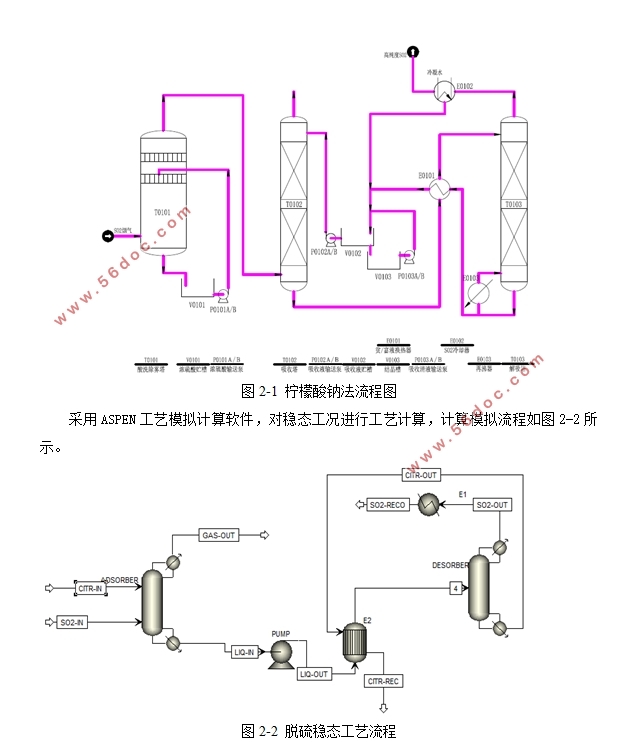
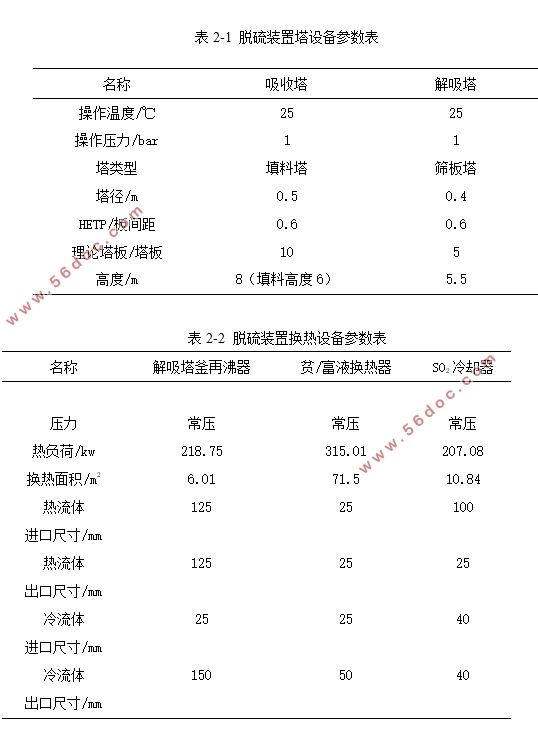
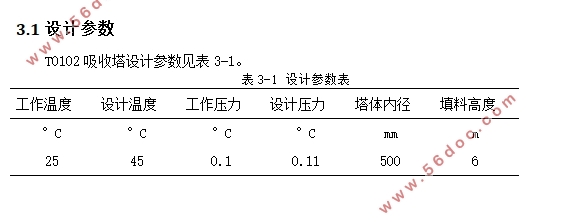
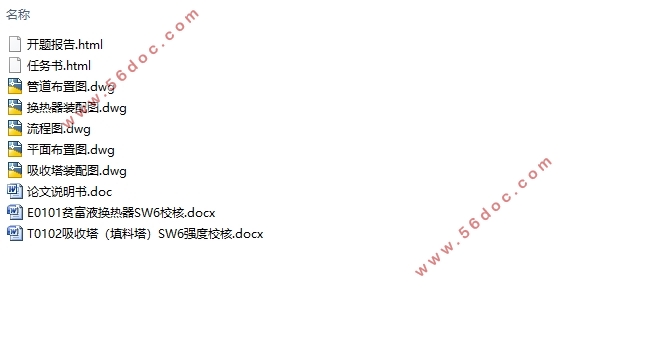
目录
摘要 I
Abstract II
第一章 绪论 1
1.1 选题依据和课题背景 1
1.2烟气脱硫技术的发展 2
1.3柠檬酸钠法吸收二氧化硫 3
1.3.1柠檬酸钠的性质 3
1.3.2柠檬酸钠法的优点 3
1.3.3柠檬酸钠吸收二氧化硫原理 4
1.4国内外研究现状 4
1.5本课题要研究或解决的问题 5
1.5.1设备腐蚀问题 5
1.5.2设备堵塞及强度不够 5
1.6拟采用的研究手段(途径) 5
1.6.1设备腐蚀解决方法 5
1.6.2设备强度和堵塞解决方法 6
第二章 工艺设计 7
2.1工艺简介 7
2.2柠檬酸钠法工艺计算 8
2.3 设备布置图 9
2.4 管道布置图 10
第三章 T0102吸收塔(填料塔)设计 11
3.1设计参数 11
3.2结构简图 11
3.3填料支撑结构 12
3.4液体分布装置 14
3.5液体再分布器 14
3.6管道选型与计算 15
3.6.1气体进气管规格的确定 15
3.6.2气体排气管规格的确定 15
3.6.3液体进口管尺寸规格 16
3.6.4液体出口管尺寸规格 16
3.6.5管口表 16
3.6.6管道法兰选型 17
3.7壁厚计算 19
3.7.1厚度计算 19
3.7.2下部设备封头厚度计算 20
3.7.3上部设备封头厚度计算 21
3.8开孔及开孔补强计算 23
3.8.1对气体出口进行补强计算 23
3.8.2对气体进口进行补强计算 26
3.9裙座的选取 29
3.9.1裙座的选材 29
3.9.2裙座的结构 29
第四章 EO1O1换热器 31
4.1换热器的结构设计 31
4.1.1换热管的选取 31
4.1.2管程、壳程 31
4.1.3换热管中心距 31
4.1.4折流板 31
4.1.5拉杆 31
4.1.6详细结构设计与强度设计 31
4.2 结构设计 32
4.2.1筒体 32
4.2.2封头 32
第五章 柠檬酸钠吸收二氧化硫工程技术经济评价 35
5.1柠檬酸钠吸收二氧化硫处理装置的投资估算 35
5.1.1 设备价格估算 35
5.1.2总投资估算 36
5.2 生产成本费用估算与分析 36
5.2.1 外购动力 36
5.2.2人工成本 37
5.2.3固定资产折旧费(双倍余额递减法) 37
5.2.4 修理费 37
5.2.5 税金 37
5.2.6 其他费用 约为0.6万元 37
5.2.7 固定成本与变动成本 37
5.3 财务评价 37
5.3.1 盈利能力分析 38
5.3.2 清偿能力分析 38
参考文献 39
致谢 42
|
